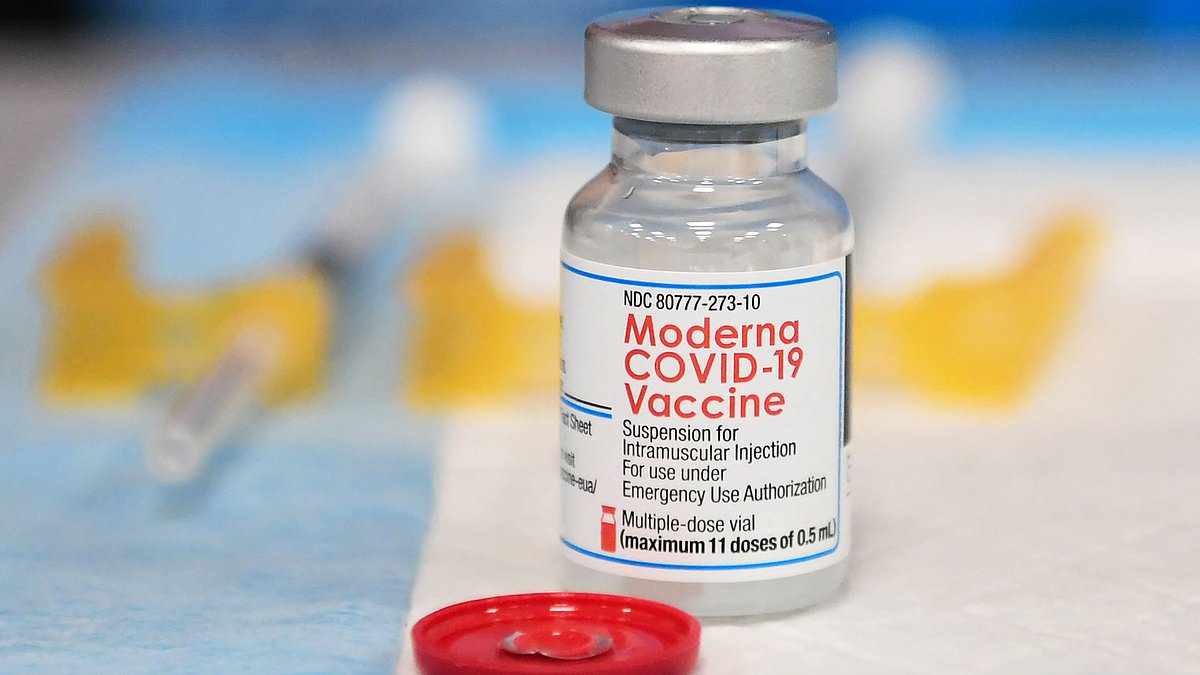Health and Human Services Secretary and longtime vaccine skeptic Robert F. Kennedy Jr. announced on Tuesday that the department is canceling nearly $500 million in contracts for new vaccine development.
In a video shared to his X profile, Kennedy said the agency is winding down its mRNA vaccine development under the Biomedical Advanced Research and Development Authority – and will be canceling 22 development projects.
‘We reviewed the science, listened to the experts and acted,’ he said, claiming that ‘the data shows these vaccines fail to protect against upper respiratory infections like COVID and [the] flu.’
The department will now be shifting the funding allocated to these 22 projects ‘toward safer, broader vaccine platforms that remain effective even as viruses mutate.’
Instead, the Department of Health and Human Services will focus on ‘the development of safer, broader vaccine strategies, like whole-virus vaccines and novel platforms that don’t collapse when viruses mutate.’
‘Let me be absolutely clear: HHS supports safe, effective vaccines for every American who wants them,’ Kennedy concluded. ‘That’s why we’re moving beyond the limitations of mRNA and investing in better solutions.’
Health and Human Services officials say the canceled contracts include an award for Moderna for an mRNA vaccine to combat the H5N1 bird flu, as well as existing contracts with Emory University and Tiba Biotech.
The department will also alter its mRNA-related contracts with CSL Seqirus and AstraZenaca, and is rejecting or canceling multiple contract bids with Pfizer.

Health and Human Services Secretary and longtime vaccine skeptic Robert F. Kennedy Jr. announced on Tuesday that the department is canceling nearly $500 million in contracts for new vaccine development

The cancelations affect contracts for new mRNA vaccines
A spokesperson for Moderna, however, told The Hill the company is unsure what award the department was referring to, saying they are not involved in developing an mRNA vaccine for the bird flu.
The company also noted to Axios that its pandemic flu contract was canceled in May.
Indeed, Kennedy’s announcement on Tuesday marked his latest move targeting vaccine manufacturers and calling into question the jabs’ effectiveness.
He has previously pulled back recommendations around the COVID-19 vaccines and fired the panel that makes vaccine recommendations.
But infectious disease experts have argued that the mRNA technology used in vaccines is safe, and they credit its development during the first Trump administration with slowing the 2020 coronavirus pandemic.
Unlike traditional vaccines – which have required growing pieces of viruses – mRNA vaccines instruct the body to produce a fraction of the virus, which then sets off the body’s immune response.
The vaccines can be made within months and quickly altered as a virus changes, and without mRNA jabs, future pandemics may be harder to stop, experts have warned.
Rick Bright, a flu expert who was ousted as chief of BARDA during the first Trump administration, for example, said the Department of Health and Human Services is ‘undermining our ability to rapidly counter future biological threats.
‘We’re weakening our frontline defense against fast-moving pathogens – a huge strategic failure that will be measured in lives lost during times of crisis,’ he told The New York Times.

Kennedy’s announcement on Tuesday marked his latest move targeting vaccine manufacturers and calling into question the jabs’ effectiveness

He was called out by infectious disease experts for his decision to cut the funding
Chris Meekins, assistant secretary for pandemic preparedness in the first Trump administration also claimed that ending BARDA’s mRNA work created a ‘national security vulnerability.
‘These tools serve as a deterrent to prevent other nations from using certain biological agents,’ he claimed online.
‘The speed of the technology to create new biodefense capabilities is a national security asset.’
Mike Osterholm, a University of Minnesota expert on infectious diseases and pandemic preparations, added that he does not ‘think I´ve seen a more dangerous decision in public health in my 50 years in the business.’
Yet Kennedy insisted that work is underway on an alternative as he spoke at a news conference in Anchorage, Alaska Tuesday evening alongside the state’s two Republican senators.
He said a ‘universal vaccine’ that mimics ‘natural immunity’ is the administration’s focus.
‘It could be effective – we believe it´s going to be effective – against not only coronaviruses, but also flu,’ he said.
The Department of Health and Human Services also noted that ‘other uses of mRNA technology within the department are not impacted by this announcement’ as scientists around the world explore its use for cancer immunotherapies.
Billionaire tech entrepreneur Larry Ellison even praised the technology for its potential to treat cancer at the White House earlier this year.
